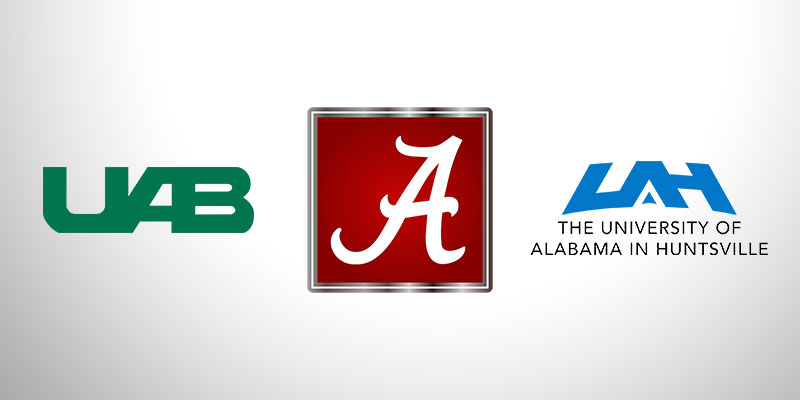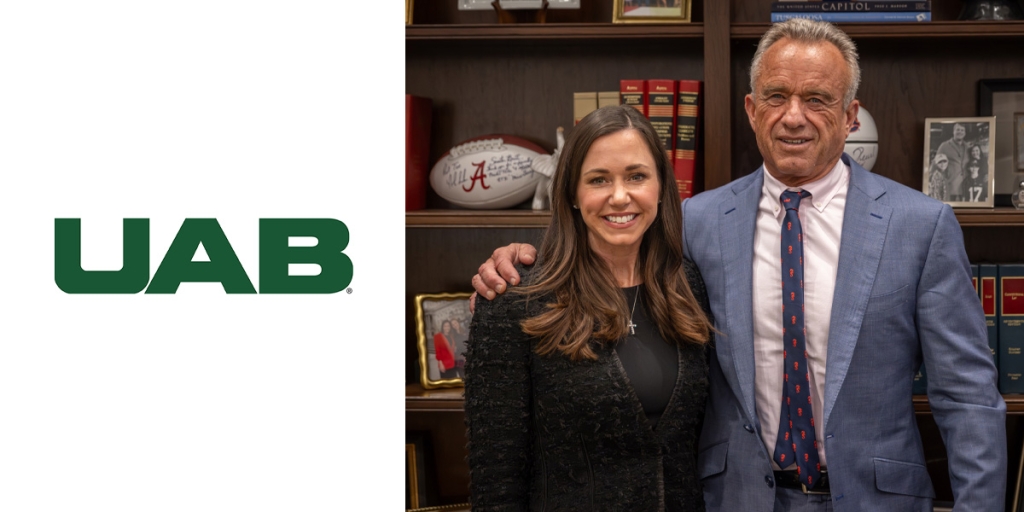The University of Alabama System on Friday released its weekly update with COVID-19 related data from each of its three distinct institutions: the University of Alabama, the University of Alabama at Birmingham (UAB) and the University of Alabama in Huntsville (UAH).
The data covered the seven-day period from Friday, August 28, through Thursday, September 3.
UAB, which actually has the most in-state students of any Alabama university, only had 19 students test positive the past week.
Similarly, UAH had just seven students test positive in that same time.
In even better news, UAB is only using 4% of its designated quarantine/isolation space on-campus, and UAH is using merely 12.9% of its same space.
Sentinel testing at UAB and UAH reinforces how well the campuses are doing. This form of sampling, which focuses on the asymptomatic population, was conducted for students, as well as faculty and staff, last week. At UAB, the sentinel testing resulted in only 0.80% positive tests; at UAH, that number was 0%.
While the testing data from both UAB and UAH show that the UA System’s Comprehensive Health and Safety Plan works, the University of Alabama’s numbers also prove that the plan works under strain.
RELATED: Medical experts: Keeping students on college campuses is safer than sending them home
“The data across the System’s three campuses shows that the UA System Health & Safety Plan is working,” stated Dr. Richard Friend, dean of the College of Community Health Sciences at the University of Alabama.
In the last week, 846 students at UA tested positive. While this number might seem high without context, comparing it to previous data from the university shows positive news.
For example, from August 25 through August 27, the university averaged more than 160 new cases per day. However, in the following seven days, that number dropped to less than 121 new cases per day. A release from the System further advised that this substantial drop in the growth rate of new cases is even more pronounced in recent days. For instance, Thursday saw just 65 new cases.
Friend explained that the declining number of new cases indicates that Tuscaloosa Mayor Walt Maddox’s decision to close bars in the city 11 days ago was prudent and effective. He similarly praised the university essentially instituting a moratorium on non-academic on-campus gatherings and activities days before that.
“We expected higher testing numbers at UA until the impact of the bar closures and the moratorium on campus social events could make a difference,” Friend said. “We are starting to see the results of those decisions.”
Isolation/quarantine capacity looks positive at the University of Alabama, also. The System release pointed to “UA stabilizing under 40%,” with capacity at 39.97%. This is barely up from 36.09% occupancy last Friday.
RELATED: Auburn using 67% of quarantine housing; No student COVID hospitalizations to-date
Further, UA continues to have low numbers of faculty and staff testing positive (12 in the last week), and the university’s state-of-the-art contact tracing efforts have shown no evidence of coronavirus transmission in the classroom setting.
Sean Ross is the editor of Yellowhammer News. You can follow him on Twitter @sean_yhn













